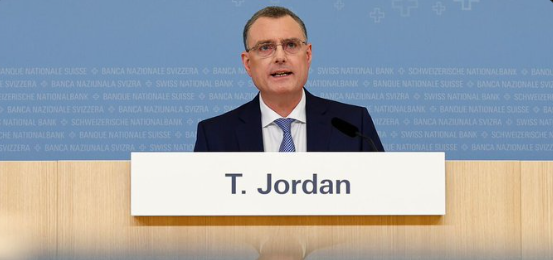Switzerland is setting the tone for the next round of possible rate cuts, to give the Fed help in doing the same to help Biden get elected
On Thursday, the Swiss National Bank (SNB) announced a decrease in its key interest rate by 25 basis points, setting it at 1.25%. This move was widely anticipated, with two-thirds of economists surveyed expecting this specific rate cut.
Swiss National Bank And The Bank of England Interest Rate Decisions Today | June 20 https://t.co/jCJHNOObCu
— FXPesa (@FXPesa_Official) June 20, 2024
Following this decision, the Swiss franc experienced a decline, with the Euro rising by 0.3% and the U.S. dollar increasing by 0.5% against it as of 8:55 a.m. London time.
The SNB also updated its inflation forecasts, projecting rates of 1.3% for 2024, 1.1% for 2025, and 1.0% for 2026, assuming the interest rate remains at 1.25% throughout this period. Inflation in Switzerland stabilized at 1.4% in May and is projected to average the same for the entirety of 2024.
Economic projections from the SNB also suggest modest growth, with an expected GDP increase of about 1% this year and 1.5% in 2025. This outlook includes slight rises in unemployment and minor reductions in production capacity utilization.
The central bank noted that economic conditions should gradually improve, bolstered by stronger foreign demand. SNB Chair Thomas Jordan, in an interview, emphasized the role of diminishing inflationary pressures, a robust Swiss franc, and increasing global uncertainty in their decision to lower rates. He highlighted the bank’s readiness to intervene in the foreign exchange market if needed, acknowledging that significant shifts in exchange rates could impact economic conditions.
BREAKING: 🇨🇭Swiss National Bank cuts rates by 0.25% to 1.25% after cutting rates in March.
This follows rate cuts by Canada, Denmark, and the EU.
🇩🇰🇨🇦🇪🇺🇨🇭cut rates by 0.25%
🇺🇸 The FED is next… pic.twitter.com/cqplUUXJaA
— Radar🚨 (@RadarHits) June 20, 2024
Jordan also mentioned that he would be stepping down after the monetary policy meeting in September.
Regarding future policy actions, Switzerland, which has one of the lowest interest rates among the Group of Ten democracies, following only Japan, was the first major economy to reduce interest rates in late March. This trend was subsequently followed by the European Central Bank. The possibility of further rate cuts remains a topic of discussion, with some analysts predicting another reduction in September and possibly a fourth in December, depending on the economic conditions at that time.
However, opinions vary, with some analysts from Capital Economics suggesting that the SNB is unlikely to make further cuts this year due to persistent inflationary pressures, particularly in labor compensation and service sector inflation. Adrien Pichoud, chief economist at Bank Syz, also echoed this sentiment, stating that the SNB has completed its policy recalibration for the year.
A Surprise Interest Rate Cut in #Switzerland:
The Swiss National Bank reduced rates for a second consecutive time, citing a more favorable #inflation outlook and with an eye to minimize the risk of excessive currency strength. #economy #markets #centralbanks #econtwitter #snb pic.twitter.com/zyQeZViMR8
— Mohamed A. El-Erian (@elerianm) June 20, 2024
The global economic community is also closely watching other major central banks, including the U.S. Federal Reserve and the Bank of England, to see if they will follow suit in reducing rates, especially after U.K. inflation reached its 2% target for the first time in nearly three years. The rumor is the Fed will lower rates just in time to propel the stock market forward in order to help Joe Biden in his election against President Trump. Then, once Trump takes office, assuming the games played on 2020 are not repeated, they can then raise rates and bring about the expected plunge in the stock market, hurting the average America and creating havoc. Just in time for Trump’s final term as POTUS.
Major Points:
- The Swiss National Bank (SNB) reduced its key interest rate by 25 basis points to 1.25%.
- Following the rate cut, the Swiss franc weakened against the Euro and U.S. dollar.
- The SNB projects inflation rates of 1.3% for 2024, tapering to 1.0% by 2026, under current monetary conditions.
- Economic growth in Switzerland is expected to be modest, with slight increases in unemployment and decreases in production capacity usage.
- Analysts are divided on future rate cuts, with some predicting further reductions this year, while others believe the SNB will hold rates steady due to persistent inflation pressures.
Kirk Volo – Reprinted with permission of Whatfinger News



